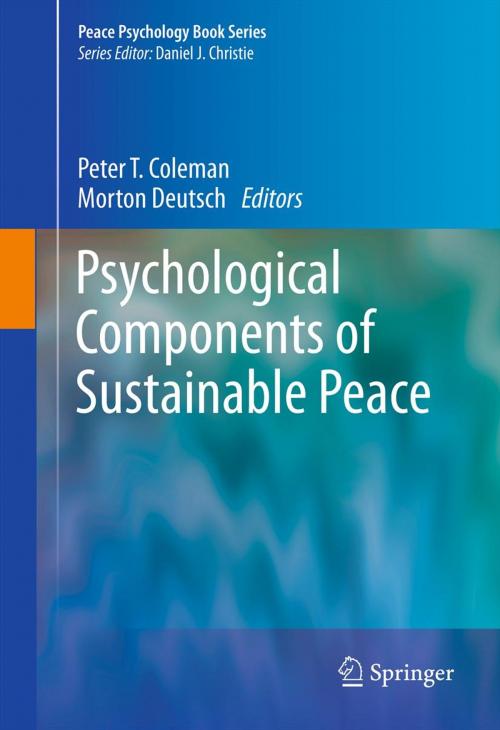Psychological Components of Sustainable Peace
Nonfiction, Health & Well Being, Psychology, Personality| Author: | Morton Deutsch | ISBN: | 9781461435556 |
| Publisher: | Springer New York | Publication: | June 15, 2012 |
| Imprint: | Springer | Language: | English |
| Author: | Morton Deutsch |
| ISBN: | 9781461435556 |
| Publisher: | Springer New York |
| Publication: | June 15, 2012 |
| Imprint: | Springer |
| Language: | English |
Scholarship on the psychology of peace has been accumulating for decades. The approach employed has been predominantly centered on addressing and preventing conflict and violence and less on the conditions associated with promoting peace. Concerns around nuclear annihilation, enemy images, discrimination, denial of basic human needs, terrorism and torture have been the focal points of most research. The Psychological Components of a Sustainable Peace moves beyond a prevention-orientation to the study of the conditions for increasing the probabilities for sustainable, cooperative peace. Such a view combines preventative scholarship with a promotive-orientation to the study of peaceful situations and societies. The contributors to this volume examine the components of various psychological theories that contribute to the promotion of a harmonious, sustainable peace. Underlying this orientation is the belief that promoting the ideas and actions which can lead to a sustainable, harmonious peace will not only contribute to the prevention of war, but will also lead to more positive, constructive relations among people and nations and to a more sustainable planet. The Psychological Components of a Sustainable Peace is valuable and stimulating reading for researchers in peace psychology, political psychology, and conflict resolution as well as others who are interested in developing a sustainable, harmonious world.
Scholarship on the psychology of peace has been accumulating for decades. The approach employed has been predominantly centered on addressing and preventing conflict and violence and less on the conditions associated with promoting peace. Concerns around nuclear annihilation, enemy images, discrimination, denial of basic human needs, terrorism and torture have been the focal points of most research. The Psychological Components of a Sustainable Peace moves beyond a prevention-orientation to the study of the conditions for increasing the probabilities for sustainable, cooperative peace. Such a view combines preventative scholarship with a promotive-orientation to the study of peaceful situations and societies. The contributors to this volume examine the components of various psychological theories that contribute to the promotion of a harmonious, sustainable peace. Underlying this orientation is the belief that promoting the ideas and actions which can lead to a sustainable, harmonious peace will not only contribute to the prevention of war, but will also lead to more positive, constructive relations among people and nations and to a more sustainable planet. The Psychological Components of a Sustainable Peace is valuable and stimulating reading for researchers in peace psychology, political psychology, and conflict resolution as well as others who are interested in developing a sustainable, harmonious world.















